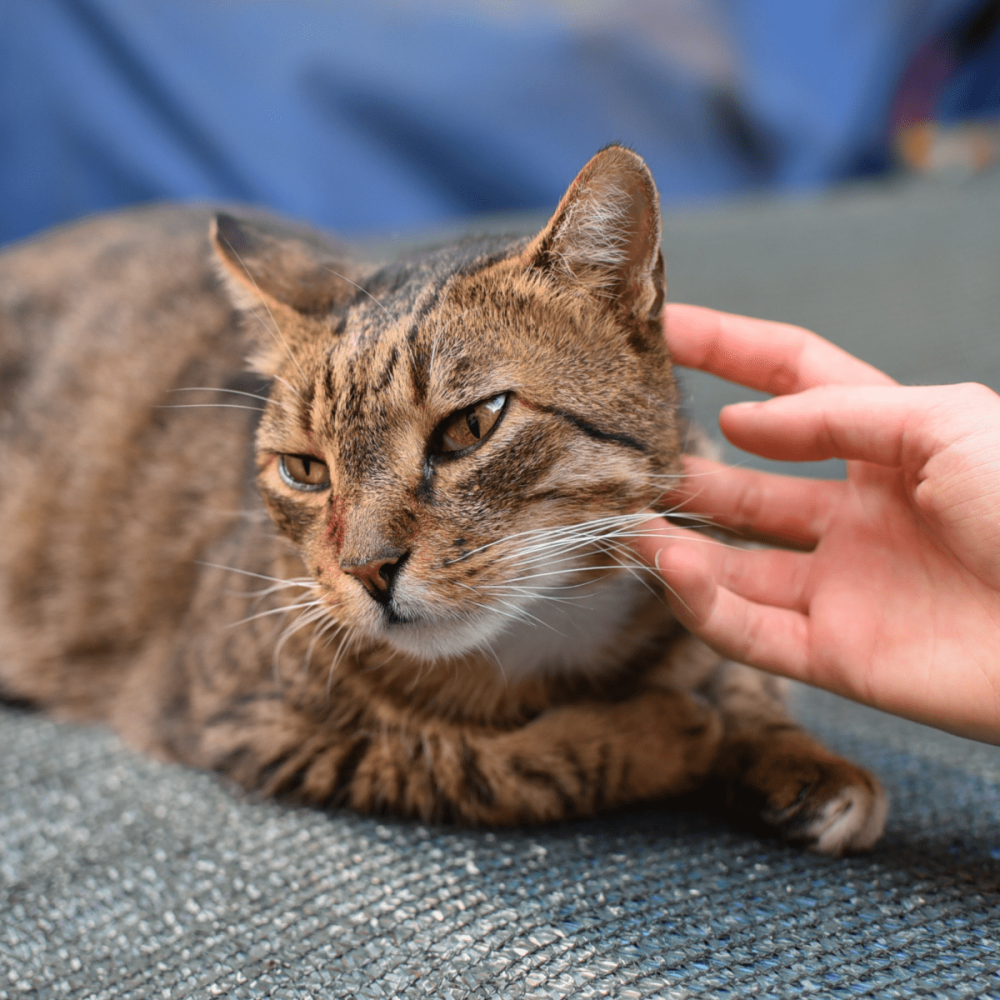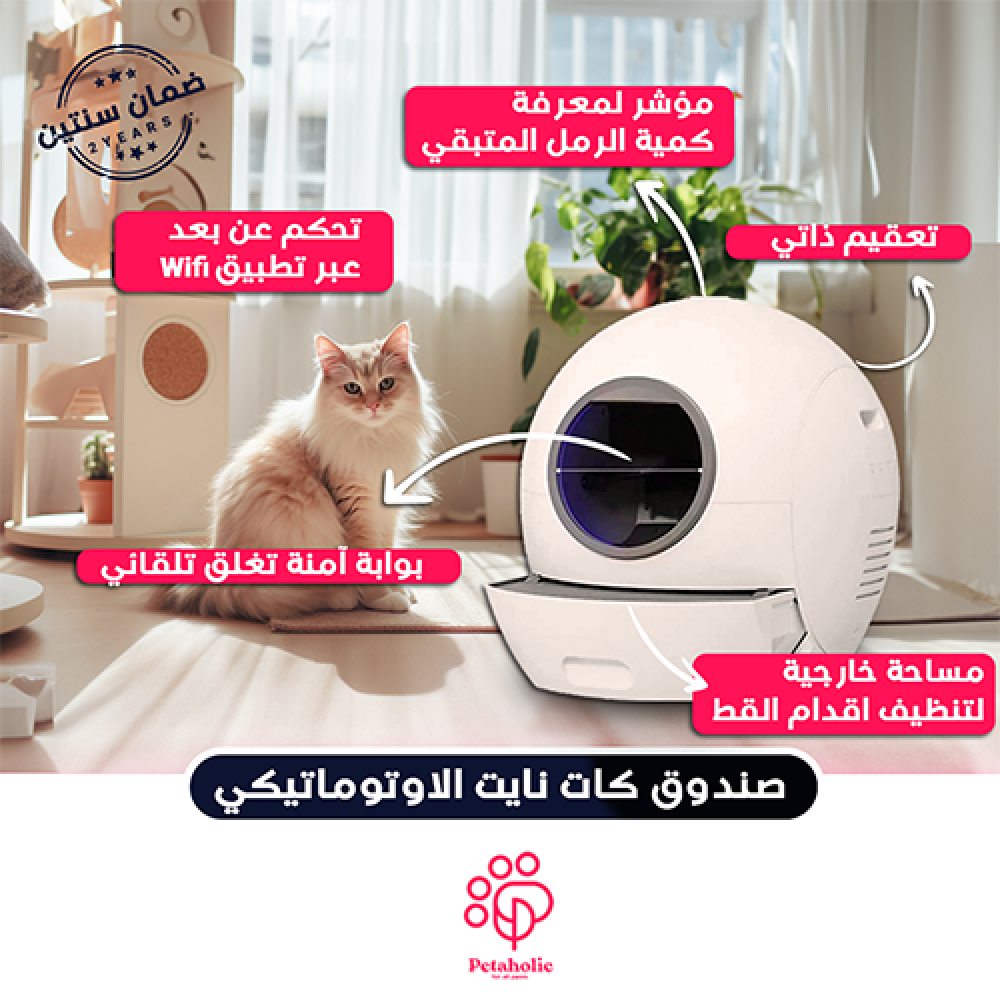
There are some potential human health risks associated with cat litter. Here are some important points:
1. Litter sand:
The sand in your cat's litter box may carry pathogens. When cleaning the box, a person may be exposed to dust that contains harmful substances.
2. Toxoplasma poisoning:
Cat litter may contain a parasite called Toxoplasma. Exposure to this particular parasite can be dangerous for pregnant women, as it can lead to fetal abnormalities.
Let's take this matter from the beginning. What is toxoplasma?
Toxoplasmosis is an infection caused by a tiny parasite called Toxoplasma gondii. Toxoplasmosis can cause serious illness in infants who are infected prenatally (when their mother is newly infected before or during pregnancy), or in people with a weakened immune system.
How is it infected?
People can get toxoplasmosis in several ways:
1. Eating food or drinking water, or accidentally swallowing soil that has been contaminated with infected cat droppings.
2. Eating raw or undercooked meat from animals, especially pigs and sheep, or wild animals that have been infected with Toxoplasma.
3. The disease is transmitted directly from the pregnant mother to her fetus when the mother is infected with Toxoplasma before or during pregnancy.
What are the symptoms ?
Individuals with a healthy immune system:
- Most people who are infected with toxoplasma do not know it and do not show any symptoms. However, when the disease does occur, it is usually mild. Some of them may feel like they are suffering from “the flu,” with swollen lymph nodes, or muscle pain that lasts for several weeks or longer. In rare cases, eye diseases may occur.
Individuals with a weakened immune system:
- People with weakened immune systems may suffer from severe symptoms. The most common symptoms in people infected with HIV are headache, confusion, and fever. Other symptoms include seizures, poor coordination, nausea or vomiting.
Infants affected before birth:
- Most infants who are infected with toxoplasma before birth do not show any symptoms at birth. However, many of them are vulnerable to developing symptoms later in life. These symptoms include vision loss, mental disability, and seizures.
How do I protect myself?
You can take several steps to protect yourself and others from Toxoplasmosis:
1. Change the cat litter box daily
. Toxoplasma takes more than one day to become infectious. If you are pregnant or have a weak immune system, ask someone else to change the litter in your cat's box. If this is not possible, wear disposable gloves and wash your hands well with soap and water afterwards.
2. Cover any outdoor sandboxes when not in use to prevent cats from getting in.
We defecate in it
3. Avoid adopting stray cats, especially young kittens. Small cats ak
There is a possibility of Toxoplasma being released into their droppings
.
4. Do not eat undercooked meat. Cook whole pieces of meat to a temperature of no less than 145 degrees Fahrenheit.
63 degrees Celsius (with a 3-minute rest, bring minced meat and game meat to a temperature of no less than 160 degrees Fahrenheit)
71 degrees Celsius
5. Wash all kitchen utensils such as knives and cutting boards
Touching raw meat.
6. If you have a weakened immune system, it is important to talk with your health care provider about having a blood test to determine if you have been exposed to toxoplasma.
How do I protect my cat?
Keeping the cat’s litter box clean plays an important role in protecting it from contracting multiple diseases resulting from the spread of bacteria and viruses. By periodically cleaning and disinfecting the box, the chances of transmission of infection to cats can be reduced. Using baking soda as a natural way to get rid of bacteria inside the litter box is effective in reducing the risk of contracting litter diseases when cats use the litter box daily.
Changing the sand used to dispose of cat litter plays an important role, as it helps restore the reusability of the box, improve fluid absorption, and reduce unpleasant odors. It is preferable to shovel sand daily to help keep the box clean and limit the spread of odors.
In addition, appropriate perfumes can be used when necessary to improve the smell of the box and make the experience of using it more comfortable for the cat.
We have found a solution for you to easily manage cat litter
Cat Knight Automatic Sandbox
A smart device that works with your phone, distinguished by providing the cleaning process automatically. a
Keep your cat's area clean and odor-free with ease.
You can protect your cat from Toxoplasma by taking the following measures, which may also help protect you from Toxoplasma:
1. Offer your cat dry or canned commercial food.
2. Do not feed cats meat because it may be a source of Toxoplasma infection.
3. Keep cats indoors so that they are not exposed to infection by eating small animals.
Should I give up my cat?
No, it is not necessary to get rid of your cat. Owning a cat does not mean you will be infected with the parasite. You are unlikely to be exposed to the parasite through touching an infected cat because cats usually do not carry the parasite on their fur. In addition, cats kept indoors (that do not hunt prey or eat raw meat) are often not infected with toxoplasma. But if you are pregnant, planning to become pregnant, or have a weak immune system, it is important to protect yourself from infection.
Can toxoplasmosis be treated ?
Yes, there is a treatment for toxoplasma. In another healthy person, mild symptoms usually disappear within several weeks to months and no treatment is required. However, treatment may be recommended for another healthy person who has eye disease due to Toxoplasma. A woman who becomes infected during pregnancy can be treated with a medication that may protect her fetus from Toxoplasma. The mother and baby should be closely monitored during pregnancy and after the baby is born.
Please note that this information is intended for awareness purposes and does not replace consulting a doctor for correct diagnosis and treatment.
. To reduce these risks, it is recommended to take some precautions, such as:
- Cleaning garbage bins regularly.
- Use gloves when cleaning waste.
- Wash hands well after handling cats or cleaning the box.
- Avoid handling cat litter if pregnant. -
Use safe and clean garbage sand.
If you have any special concerns or health symptoms, it is always best to consult a doctor for better advice and personal evaluation.


